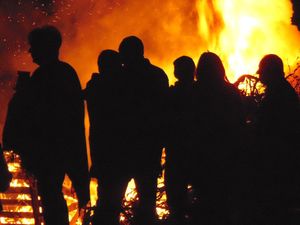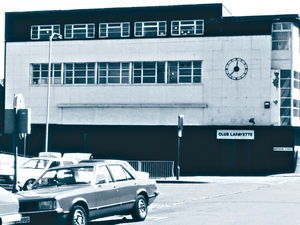Bonfire traditions from around the world
Ah, bonfire night, standing in a smoky back garden with a sparkler, or tucking into your hot jacket potato. No restrictions permitting, bonfire celebrations are a fantastic opportunity to meet with friends and family and have fun.

In the UK, of course, the failed attempt to blow up the Houses of Parliament is why we have such a loud and colourful celebration on an annual basis. As the rhyme goes ‘Remember, remember, the Fifth of November, gunpowder treason and plot. I see no reason why gunpowder treason should ever be forgot.”
But, of course, depending on the country, a bonfire can signify different celebrations, traditions, and functions. In some European regions, bonfires are made for religious traditions, such as the night before Easter, the evening of St John’s Day, and Midsummer Eve.
In Canada, the celebration of Saint-Jean-Baptiste Day sees Quebec light up bonfires on June 24.
Burning the Witches is a popular holiday in the Czech Republic that takes place on April 30, so named to ward off witches and wicked spirits.
In Israel, during the Jewish holiday of Lag BaOmer, bonfires are lit to commemorate the death of Rabbi Shimon Bar Yochai.
In Japan, Daimonji is a festival in Kyoto where five big bonfires are lit to serve as the culmination of the Obon festival.
And in the USA, on the night before July 4, bonfires are lit in some parts of New England.
In the UK, as well as jacket potatoes, a traditional cake eaten on bonfire night is Yorkshire Parkin, a sticky cake containing a mix of oatmeal, treacle, syrup and ginger.
Bonfires include burning old pallets and an effigy of Guy Fawkes.
Dummies have been burned on bonfires since the 13th century, initially to drive away evil spirits but the focus of the sacrifices switched after Guy Fawkes’ treason.
That said, Fawkes was a former pupil of St Peters School in York and it has become one of that school’s traditions not to have a guy.
The tradition of Penny For The Guy is one which seems to be fading but people of a generation will recall annually making a guy out of rags, filled with paper or straw. He’d be wheeled round to the neighbours or placed outside a ship, with an appeal of “Penny For The Guy”.
And, of course, the main event – fireworks – to represent the explosives that were never used by the plotters.
It all makes for a fantastic night, so wrap up warm, grab those toffee apples and have fun – but follow the firework code and remember to stay safe.





